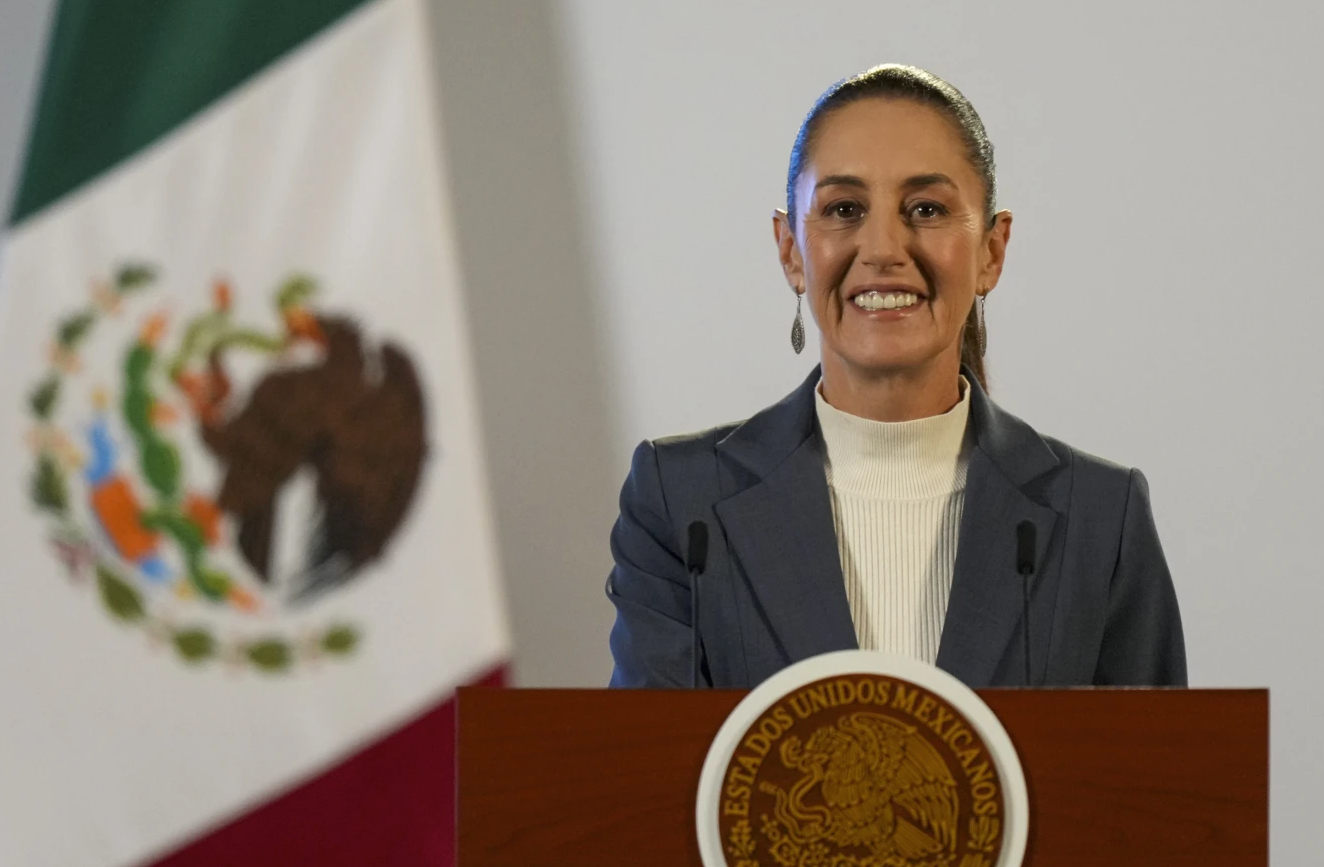In her first days in office, Mexico’s new president, Claudia Sheinbaum, made a bold statement by breaking with the energy policies of her predecessor, Andrés Manuel López Obrador. She vowed to revitalize the country’s stalled energy transition and prioritize the development of renewable energy sources. Sheinbaum’s promise to meet Mexico’s growing energy demands through sustainable means represents a seismic shift in policy that is set to impact not just Mexico but the broader region of Latin America and beyond.
At the heart of Sheinbaum’s vision is a goal to generate 45% of Mexico’s electricity from renewable sources by 2030, a significant increase from the 24% it achieved in 2022. This shift toward renewables comes in stark contrast to López Obrador’s reliance on fossil fuels, which included investments in a new $20 billion oil refinery and a rejection of auctions for solar and wind projects. Mexico, under Sheinbaum’s leadership, now seems poised to reclaim its position as a regional leader in the fight against climate change, aligning itself once again with the Paris Agreement’s targets.
Transitioning to a greener economy does not come without challenges, both domestically and regionally. As Mexico embarks on this ambitious path, it must carefully balance its commitments to renewable energy with its existing dependence on fossil fuels, particularly oil production by the state-owned Pemex. The interplay between energy policy, economic development, and regional security in Latin America is complex and deeply interconnected.
A New Direction with Old Challenges
Claudia Sheinbaum’s promise to shift Mexico’s energy focus toward renewables represents a bold new direction for a country that has historically relied on fossil fuels, especially oil, to power its economy. Under former President López Obrador, Mexico doubled down on fossil fuel investments, with Pemex playing a central role in the national energy strategy. López Obrador’s administration spent more than $20 billion on the Dos Bocas refinery and halted renewable energy auctions, signaling a firm commitment to oil.
In contrast, Sheinbaum’s approach seeks to reverse this trend, advocating for cleaner energy while also attempting to strengthen Pemex’s role in the energy sector. While her policy aims to reduce oil production and cap it at 1.8 million barrels per day—down from the 2.6 million barrels López Obrador had targeted—it remains to be seen how this balance between renewables and fossil fuels will be achieved. Mexico, after all, has limited oil reserves, and experts believe that, without resorting to methods like fracking or deepwater exploration, its oil output will continue to decline.
Adrian Fernández, director of the Mexico Climate Initiative, has highlighted that Mexico’s current oil fields are nearing depletion, with only about ten years of production left at current rates. This makes it economically and environmentally unsustainable for Mexico to ramp up fossil fuel production in the long term. In this context, Sheinbaum’s focus on renewables may be more than just a political stance—it could be a necessity for Mexico’s energy security.
By targeting a renewable energy share of 45% by 2030, Sheinbaum is positioning Mexico to meet its obligations under the Paris Agreement, which seeks to limit global temperature rise to less than 2°C above pre-industrial levels. Achieving this target will require significant investments in infrastructure, technology, and policy reforms. However, while the energy transition may bring Mexico closer to sustainability, it also raises critical questions about the security and stability of the country’s energy sector during the transition period.

Walking a Tightrope
Energy security, defined as the availability of reliable and affordable energy, remains a critical issue for Mexico, particularly as it seeks to transition away from fossil fuels. Mexico’s energy sector has long been dominated by Pemex, a state-owned oil company that has been the backbone of the country’s economy for decades. Any significant reduction in oil production, such as the limit proposed by Sheinbaum, could have serious economic consequences, particularly in terms of government revenues and employment.
Pemex is not only an economic juggernaut but also a symbol of national pride. López Obrador’s administration focused on bolstering Pemex as a means of maintaining Mexico’s energy independence. However, this approach has come at a cost, with declining production levels and rising environmental concerns. Sheinbaum’s task is to maintain this balance by revitalizing Pemex in a way that aligns with her broader sustainability goals. In practical terms, this may mean restructuring Pemex to focus more on efficiency and reducing waste, rather than expanding production capacity.
A successful energy transition could bring numerous economic benefits to Mexico, including new jobs in the renewable energy sector, increased foreign investment, and a more diversified energy portfolio. For example, Mexico’s abundant solar and wind resources position it well to become a global leader in renewable energy production. If Sheinbaum’s government can create the right regulatory environment and attract private investment, Mexico could see a boom in clean energy projects, similar to those in countries like Germany and China.
However, the transition also carries risks. If Mexico moves too quickly away from oil without ensuring the reliability of renewable energy infrastructure, it could face energy shortages or price volatility, both of which would have serious consequences for the economy and public welfare. Energy instability could also increase tensions in the region, as neighboring countries may view Mexico’s energy shift as a source of potential disruption to cross-border energy markets.
Mexico’s energy transition will also have to contend with political challenges, particularly from stakeholders invested in the fossil fuel industry. Pemex’s workforce, along with regional governors in oil-producing states, may resist efforts to curtail production, fearing economic losses and job cuts. In addition, the costs associated with building new renewable energy infrastructure may strain the government’s budget, particularly if global energy prices fluctuate or if economic growth slows.
Regional Security and Energy Cooperation in Latin America
Mexico’s energy transition does not occur in a vacuum—it has significant implications for the broader Latin American region, where energy security and political stability are deeply intertwined. Latin America is home to some of the world’s most resource-rich countries, with vast reserves of oil, natural gas, and renewable energy potential. However, the region also faces significant challenges, including political instability, economic inequality, and environmental degradation.
Historically, Mexico has played a leading role in shaping regional energy policies, particularly through organizations like the Latin American Energy Organization (OLADE) and as a member of multilateral forums. Mexico’s decision to pivot toward renewable energy could inspire other countries in the region to follow suit, particularly as concerns about climate change become more pressing. Countries like Chile and Brazil have already made significant strides in renewable energy, and Mexico’s leadership could strengthen regional cooperation on clean energy initiatives.
Mexico’s energy transition could also create new tensions, particularly if it disrupts existing energy markets. Mexico is a key player in the North American energy market, exporting oil and natural gas to the United States and importing refined petroleum products. Any significant changes to Mexico’s energy production could affect trade flows and energy prices, potentially leading to friction with the U.S. and other trading partners.
Mexico’s transition could complicate its relationships with other oil-producing countries in Latin America, such as Venezuela and Ecuador. As Mexico reduces its reliance on fossil fuels, these countries may seek new markets for their oil exports, potentially leading to increased competition and geopolitical tensions. At the same time, Mexico’s move toward renewables could position it as a leader in regional climate change diplomacy, opening new avenues for cooperation with countries that share its commitment to sustainability.

Geopolitical Ramifications: Mexico’s Role in the Global Energy Landscape
Beyond Latin America, Mexico’s energy transition will have far-reaching geopolitical implications, particularly in the context of global climate change efforts and the evolving international energy market. As one of the world’s largest oil producers, Mexico’s decision to cap production and prioritize renewables could send a strong signal to other countries about the importance of transitioning to cleaner energy sources.
Mexico’s leadership in this area could also bolster its standing in international climate negotiations, particularly as countries prepare for the next round of climate talks under the Paris Agreement. Sheinbaum’s commitment to achieving 45% renewable energy by 2030 positions Mexico as a key player in global efforts to limit greenhouse gas emissions. If Mexico is successful in meeting its targets, it could set an example for other developing countries that face similar challenges in balancing economic growth with environmental sustainability.
Furthermore, Mexico’s shift toward renewables could also reshape its relationships with major powers, particularly the United States and China. The U.S., Mexico’s largest trading partner, has historically been a key player in Mexico’s energy sector, particularly through investments in oil and natural gas infrastructure. However, the U.S. is also a leader in clean energy technology, and Mexico’s transition could open new opportunities for collaboration in areas like solar, wind, and energy storage.
China, meanwhile, has been rapidly expanding its presence in Latin America through investments in infrastructure and energy projects. China’s Belt and Road Initiative (BRI) has included several renewable energy projects in the region, and Mexico’s shift toward clean energy could attract Chinese investment. However, this could also lead to new geopolitical tensions, as the U.S. seeks to counter China’s growing influence in Latin America.
Climate Change and Its Impact on Regional Stability
Mexico’s renewed focus on combating climate change is not just an energy policy—it is a crucial component of environmental security. Climate change poses significant risks to the stability of countries in Latin America, where rising temperatures, changing weather patterns, and extreme events such as hurricanes and droughts threaten to disrupt economies, displace populations, and exacerbate existing social and political tensions.
Climate change has already had a profound impact on agriculture, water resources, and coastal communities. Rising sea levels and more frequent hurricanes pose a direct threat to Mexico’s extensive coastline, while prolonged droughts in the country’s interior have affected food production and access to water. Addressing these challenges will require not only a shift toward renewable energy but also broader efforts to build resilience to climate impacts.
Mexico’s leadership on climate change could also serve as a model for other countries in Latin America that are grappling with similar challenges. Countries like Brazil and Argentina, which rely heavily on agriculture, are particularly vulnerable to the effects of climate change. By prioritizing sustainability and environmental protection, Mexico could help to foster regional cooperation on climate adaptation and resilience.
The link between climate change and security cannot be ignored. As climate impacts intensify, they could exacerbate existing conflicts or create new ones, particularly in areas where resources like water and arable land are scarce. In this context, Mexico’s energy transition could play a key role in promoting environmental security and reducing the risks of climate-related conflict in the region.

Charting a Course for a Sustainable and Secure Future
Claudia Sheinbaum’s presidency marks a turning point for Mexico, as the country embarks on an ambitious energy transition that has the potential to reshape both its domestic economy and its role in the global energy landscape. By prioritizing renewable energy and reducing reliance on fossil fuels, Sheinbaum aims to position Mexico as a leader in the fight against climate change, while also addressing the challenges of energy security and economic development.
This transition will not be without challenges. Mexico must carefully balance its commitments to sustainability with the economic realities of its oil-dependent economy. It will need to navigate complex regional dynamics, foster international cooperation, and build the infrastructure necessary to support a clean energy future.
In the years ahead, Mexico’s energy policy will serve as a bellwether for other countries in Latin America and beyond. If successful, Mexico’s transition could inspire a new era of regional cooperation on energy and climate security, positioning Latin America as a key player in the global fight against climate change. At the same time, the security implications of this transition will require careful management, as Mexico seeks to balance the competing demands of economic growth, environmental protection, and regional stability.
Mexico’s path forward will depend on its ability to chart a course that is both sustainable and secure—one that not only meets the energy needs of its people but also contributes to the broader goal of preserving the planet for future generations.



